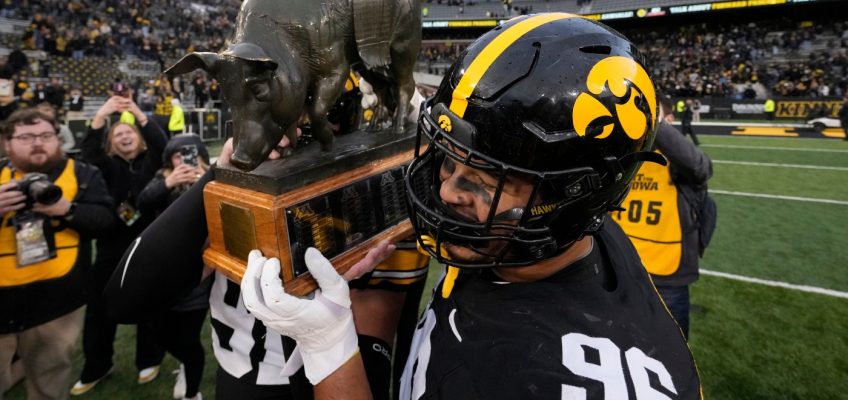DULUTH — Minnesota Duluth junior goaltender Eve Gascon was back in the Bulldogs’ crease Saturday less than 24 hours after being helped off the ice of Amsoil Arena with an apparent shoulder injury.
One of four goaltenders competing to be on Canada’s 2026 Olympic women’s hockey team, Gascon made 28 saves in her return, but it wasn’t enough for No. 4 UMD in a 3-2 loss to No. 3 Minnesota in Duluth.
Gascon left Friday’s 4-0 loss early in the second period after diving and reaching back for a puck that had gotten by her and across the crease. The Bulldogs’ All-American goaltender had her shoulder looked at before being helped off the ice and into the locker room.
Gascon made 16 saves on 18 shots before being replaced on Friday by freshman Sophia Villanueva, who also made 16 saves on 18 shots in her college debut.
Bulldogs coach Laura Schuler said Saturday that Gascon was pulled from Friday’s game as a precaution, and that evaluations Friday night and Saturday morning proved Gascon was 100% ready to return for Saturday’s game.
“She wanted to play,” Schuler said. “When you have a world-class goalie like that who wants to be in the net, you give them that opportunity. I thought she was outstanding for us today.”
Sophomore center Caitlin Kraemer and sophomore wing Josie St. Martin scored for UMD on Saturday, with Kraemer giving the Bulldogs a 1-0 lead 7:55 into the second period. St. Martin, a transfer from Ohio State, pulled UMD within a goal via an extra attacker power play goal with 3:56 left in the game.
“A great back and forth game,” Schuler said. “I was proud of our girls at the end when we went for it on the 6-on-4. I thought they did a fantastic job of being able to put one away for us, and unfortunately, the time just kind of ran out.”
Fifth-year senior captain Abbey Murphy scored two goals for the Gophers while senior forward Josefin Bouveng got the goal that tied the game at 1-1 just 3:26 after Kraemer gave UMD the 1-0 lead.
Minnesota sophomore goaltender Hannah Clark made 37 saves on 39 shots, including 17 saves in the third period.
The Bulldogs have not beaten the Gophers since knocking them off in the 2022 NCAA regional final at Ridder Arena in Minneapolis en route to the Frozen Four and NCAA championship game. UMD is 0-14-1 since then and has lost seven straight.
Related Articles
Gophers’ latest loss to Hawkeyes isolates that rare win in 2023
Gophers destroyed in 41-3 rivalry loss to Iowa
Gophers cruise to 82-62 win over North Dakota in final tune-up
Gophers football: John Nestor will return vs. Iowa
St. Thomas opens new on-campus arena for hockey and basketball




